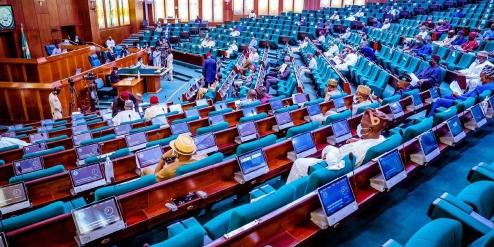LAGOS MARCH 28TH (NEWSRANGERS)-A bill seeking to amend the 1999 Constitution to transfer control of natural resources, including oil fields, minerals, and natural gas, from the federal government to states has scaled second reading in the House of Representatives.
The proposed legislation aims to restructure Nigeria’s resource governance framework, granting states greater autonomy over the exploration, management, and revenue generation of natural assets within their jurisdictions.
The bill, titled “A Bill for an Act to Alter the Provisions of the Constitution of the Federal Republic of Nigeria, 1999 to Decentralize the Governance of Natural Resources in the Federal Republic of Nigeria to transfer Mines and Minerals, Including Oil Fields, Oil Mining, Geological Surveys and Natural Gas from the Exclusive Legislative List to the Concurrent Legislative List and for Related Matters (HB. 200, 1310, 1446 & 1546) was sponsored by Abbas Tajudeen, the House speaker and three others.
Currently, certain natural resources, such as mines, minerals, oil fields, oil mining activities, geological surveys, and natural gas, are managed solely by the federal government. They are on what’s called the “Exclusive Legislative List,” meaning only the federal government makes laws and decisions about them.
Part 1 of the Second Schedule, (Exclusive Legislative List) of the 1999 Constitution, Item 39 currently states: “Mines and minerals, including oil fields, oil mining, geological surveys, and natural gas.” This provision gives the federal government exclusive control over these resources, meaning that states have no direct authority to regulate, tax, or manage them.
The bill seeks to remove Item 39 from the Exclusive List and place it under the Concurrent Legislative List, where both the Federal and State Governments would have the power to legislate and regulate resource extraction and management.
If the bill becomes law, it could mean states can issue mining and oil exploration licenses, regulate resource extraction, and collect revenues independently of the federal government.
A similar bill was introduced in 2016 by the House but got stuck in its second reading. There are arguments that decentralisation could create disparities among states, with wealthier oil-producing states benefiting more than others.
Having passed the second reading, the bill will now proceed to the Committee Stage, particularly the committee on constitution amendment. If approved, it will return for a third reading before being sent to the Senate for Concurrence.
The bill must also secure approval from two-thirds of the 36 State Houses of Assembly before it can become law, as required for constitutional amendments under Section 9 of the 1999 Constitution.
BusinessDay
For media advert placement, events coverage, media consultancy, placement of publications and further inquiries please WhatsApp 2348023773039 or email: labakevwe@yahoo.com











